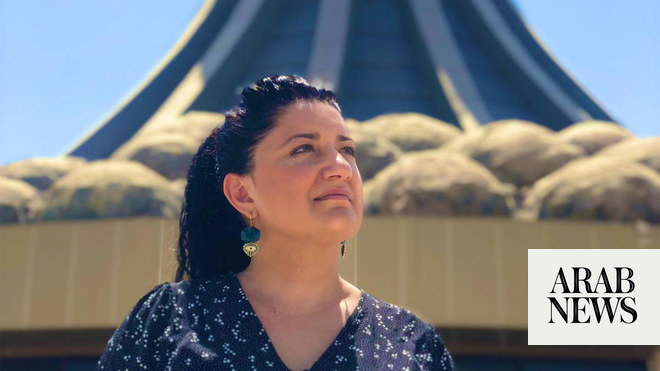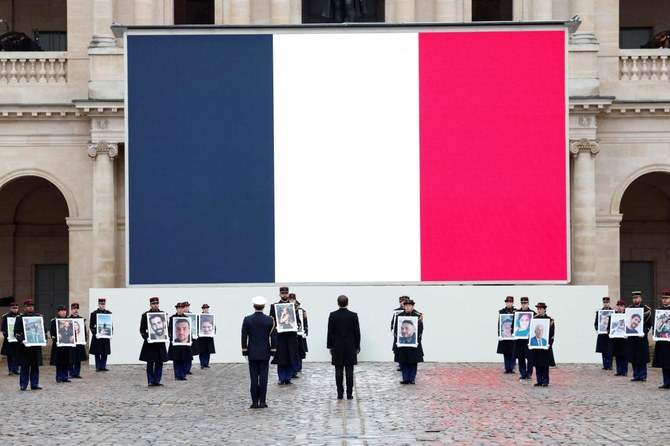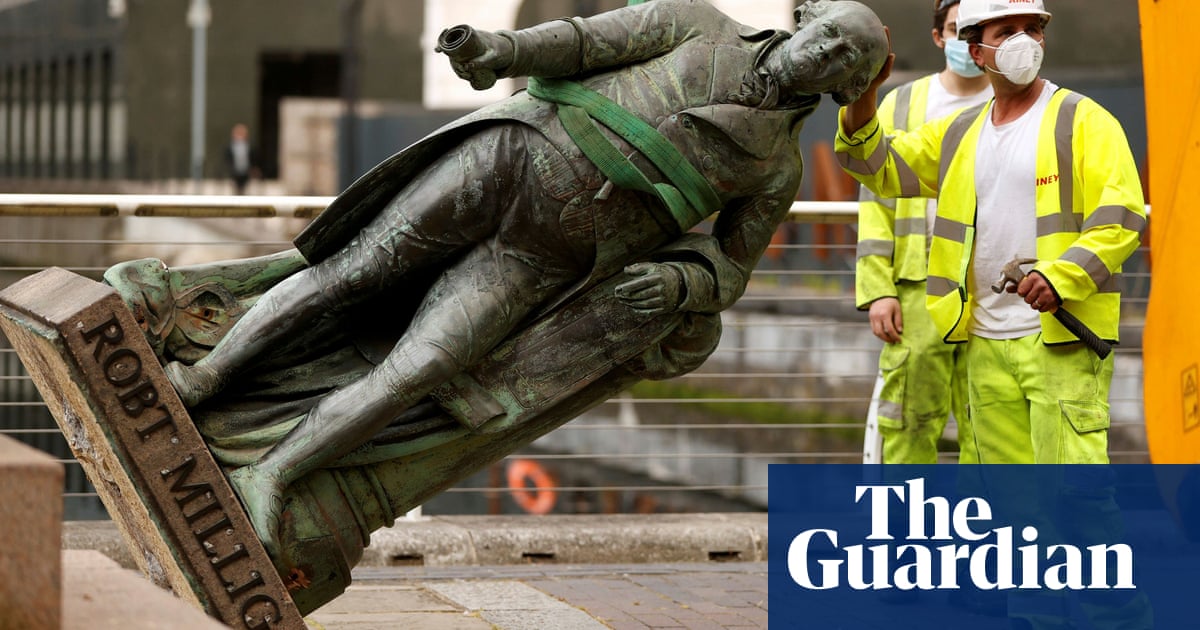
5,000 people died in a chemical attack ordered by Saddam Hussein on Halabja in north-eastern Iraq
ANKARA: Kurdish soprano Pervin Chakar has commemorated the Halabja massacre in Iraq with an album that puts to song the work of one of her people’s greatest poets.
“In Memorium” is to be released on YouTube on March 16, the 35th anniversary of the day when 5,000 people died in a chemical attack ordered by Saddam Hussein on the town in north-eastern Iraq.
The album uses poems written by Serko Bekes, a Kurdish-Iraqi who was exiled by the dictator for refusing to work for him, and whose later poems demanded freedom for his people and accountability for the victims of the Iraqi regime’s brutality.
Chakar said she became inspired by Bekes’s work during a visit last year to the site of the massacre and a tour of the memorial monument, museum and nearby cemetery for victims.
“On the wall of Halabja museum, I noticed Serko Bekes’s poem “The fourteenth of the month”. Then I thought I could compose some of Serko’s poems for the 35th anniversary because he is a real observer and bears the spirit of that soil. I dedicated this album to the victims and their families,” she told Arab News.
Chakar said she wanted to take part in the global commemoration of the massacre, relieve some of the pain of her Kurdish compatriots and to say “never again.”
Chakar hopes to send a copy of the album to the museum. “Maybe they can play it to the visitors of the museum as a background voice to highlight the memories of this tragedy,” she said.
Bekes was born in 1940 and was the son of Kurdish poet Faik Bekes. He was forced to flee to Sweden after refusing Saddam’s order to write for him, and went on to win Kurt Tuckholsky and Piremerd awards. He died in 2013 and his remains were returned to his hometown of Sulaymaniyah.
His will requested that he be buried in the town’s Freedom Park “so that even in my death I can hear my people, music, traditional dances and children’s plays.”
Throughout her musical career, Chakar has focused on the musical roots and heritage of her homeland, although she made her name on international opera stages,
Last year, she released “Breath of Nahrain,” which included songs in Kurdish, Zazaki, Armenian, Kurmanci and Assyrian.
In 2019, Chakar performed in Turkiye for the 150th anniversary of the birth of well-known Armenian composer Gomidas Vartabed and sang Kurdish folk songs written by Gomidas.
She grew up in Turkiye’s southeastern province of Mardin. Her encounter with an album by Maria Callas changed her musical orientation and encouraged her to be a soprano when she was studying at a conservatory in Ankara.
Chakar graduated from the Conservatorio di Musica F. Morlacchi in Perugia with honors, and has gone on to perform in some of Europe’s premiere theaters, including Milan’s Teatro Alla Scala and Vienna’s Theater an Der Wien.
She now lives in Germany but said she would always keep her bonds with Turkiye and Iraqi Kurdistan alive, and has several concerts planned in the region this year.
Chakar’s tour of Halabja last year followed what was billed as the first ever opera performance in Irbil, the capital of Iraqi Kurdistan, to an audience of more than 400.












